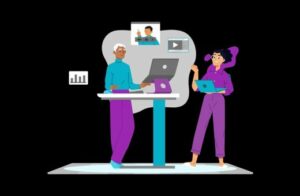The Importance of Live Music Venues
Why does it matter that live music venues increase revenue?
Live music venues are an essential part of the music industry. The importance was reinforced by the massive #SAVEOURSTAGES movement led by the National Independent Venue Association that led to the national grant program for shuttered venue operators.
Venues provide a space for artists to perform and for fans to experience their music in a unique and exciting way. These kinds of events literally bring people together and connect communities over shared love of music. Without live music venues, the world would be deprived of the energy, passion, and heart that can only be found in a live performance.
In addition to their cultural significance, live music venues also play an important economic role. These venues create jobs for musicians, sound technicians, security personnel, bartenders, promoters, and more.
They attract tourists who spend money on hotels, restaurants, and other local businesses. Live music venues are also crucial for local communities as they provide a gathering place where people can come together to enjoy music and socialize with each other.

The Need for Generating More Revenue
Although live music venues are important cultural and economic institutions, they often struggle financially. We often talk to venues and they joke, “we’re a non-profit… a for profit business that doesn’t make any profit.” It’s certainly true for a lot of small listening rooms and venues that are a labor of love, but it doesn’t have to be that way.
More importantly, a live music venue can be a more sustainable part of the community if they can be profitable. Even non-profits that last a long time recognize the need to drive revenue to keep the operation running.
Many factors contribute to this struggle including high rent costs in prime locations, stiff competition from other forms of entertainment (like streaming services), and changing consumer preferences. In order to survive in today’s competitive market environment, it is essential that live music venues find new ways to generate revenue.
In our 2024 Event Promotion Trends Report, more than 65% of event organizations said that inflation is making it hard to keep producing events.
In addition to charging for admission and raising ticket prices to be more in-line with market prices, venues can generate revenue from alternative revenue sources. This means even if a live music venue is committed to affordable tickets or free admission, there are still opportunities to drive revenue in order to make the operation sustainable.
Additional revenue streams can help these establishments cover costs associated with running the venue while also allowing them to invest back into artists’ performances or improve amenities offered at the venue itself.
By generating more money through creative means such as merchandise sales or hosting special events like festivals or concerts outside their usual schedule of shows – these spaces will continue serving as vital contributions not just within local economies but also within culture nationwide!
1. Host Special Events
Bringing the Good Vibes with Music Festivals and Concerts
Hosting special events such as music festivals, album launches, and concerts is a surefire way to generate more money for live music venues. These events bring in a lot of foot traffic, which can lead to increased revenue through ticket sales, merchandise sales, and food and drink sales. Additionally, these events can help to increase brand awareness for the venue and attract new customers.
Check out our 19 Event Types That Dominated Our 19,153 Promotions Last Year to get some inspiration.
To ensure these events are successful, it’s important to plan ahead. Book talent early so that there is time for promotion and advertising leading up to the event. A good combination of touring acts and local acts can draw a varied crowd and introduce fans to new artists.
Collaborate with other local businesses to sponsor or be vendors at the event. By doing this you might get some discounts or free services from them like free advertising space in their store or on their website. Partnering with other organizations is key to accessing new audiences to keep your venue top of mind for fans.
The Benefits of Local Business Collaboration
Collaborating with local businesses helps create a sense of community within the music scene while also bringing in additional revenue streams. Local businesses are often interested in sponsoring live music events because it gives them an opportunity to showcase their products or services while also supporting their community. In addition to financial support from local businesses sponsoring the event, they may also provide additional resources such as marketing assistance or food and beverage offerings for attendees.
This can lead to more exposure for both parties involved – the venue and the business sponsoring it – creating mutually beneficial relationships. Overall, hosting special events like music festivals, album launches, and concerts is an excellent way for live music venues to generate more money while also building community connections with other local businesses.
2. Leverage Live Streaming from Your Music Venue
When people talk about live music venues, they’re usually talking about in-person.
Recently, there has been an explosion in interest and fears around live streaming and how that will change in-person live events. The fear most music venues and performers have with live streaming is that it will cut into in-person attendance.
“I used to think live streaming would get in the way of my sales as a promoter, but the bottom line is, and this is great news for everyone in the industry, people know that nothing will ever replace the experience of being in the same room with the act and their fellow fans. Sure its convenient to sit on your couch and watch a show, but it’s just not the same thing.” – Howie Schnee, CEG Presents and Volume.com
I used to think this too, but when you think about it, it makes sense.
Live streams just aren’t the same as the “real” thing in-person. You miss out on the connections, the real vibrations from the music, and all the spontaneous experiences that happen in a live in-person environment.
But live streams are better than not experiencing your favorite band or event at all.
Lots of people can’t make it out to an in-person event because of travel, family commitments, and all kinds of other reasons. Giving them the opportunity to have a sample experience of your venue can create additional opportunities to connect fans, artists, and your venues.
There are a few ways to monetize live streams. Through platforms like Volume.com, you can sell tickets (especially for a sold out show, these overflow tickets can really sell) but you can also allow free access in exchange for emails. We all know emails are digital gold when it comes to event promotion.
Finally, someone that might interact with your venue a few times a year can now interact monthly or weekly, creating deeper relationships with your venue and brand. That, over time, should also result in capturing more revenue as they choose to see shows at your venue vs going elsewhere.
3. Offer More Food and Drinks
Live music venues should offer food and drinks as part of their services. This strategy can generate more revenue by providing customers with additional options to enjoy while they are watching a show. While some venues may have a restaurant already built-in, others may need to partner with local food vendors to offer unique cuisine options.
Providing food and drinks is not only a way to boost revenue, but it also creates a more enjoyable experience for customers. When people come out for live music shows, they often want to relax and unwind with good food and drink choices.
Therefore, adding a bar or restaurant service can be an excellent source of income for many live music venues. A well-stocked bar and kitchen will not only keep customers entertained during the event but also give them something to look forward to when they return in the future.
Adding a Bar or Restaurant to the Venue
Many venues already have a bar, but for those who don’t, adding a bar or restaurant can be quite easy. In case there’s no extra room available, some adjustments may need to be made in terms of layout design within the venue space.
Regardless of whether an establishment has sufficient space or requires alterations, having an exclusive place where people can eat or drink improves customer satisfaction levels. Investing in quality equipment like draft beer machines and premium kitchen appliances would make sense as well since these products would add value and enhance customer experience levels significantly.
There is also a huge opportunity to sell non-alcoholic beverages as a new form of revenue. These products are exploding in popularity and you’re missing out on significant revenue by only selling alcoholic beverages and water.
Partnering With Local Food Vendors To Offer Unique Cuisine Options
Not all live music venues might have enough space available for installing kitchens or bars on-site, while others simply might not have any desire in managing those services themselves.
In such cases partnering up with local food vendors is an excellent option that could benefit everyone involved. Collaborating with external vendors allows live music establishments access unique menus while simultaneously supporting local businesses which can help to create a sense of community and support. Food festivals themselves attract a huge audience, so it’s worth looking into for a music venue.
It can also be financially beneficial because partnering with local vendors can help reduce overall operational costs. Furthermore, visitors will have access to a variety of food choices, which can be a significant factor in drawing them in and keeping them interested in coming back again and again.
Adding Non-Alcoholic options through an NA distributor can increase revenue too. Designated drivers, sober folks, or people just choosing not to drink that night want a similar experience. Offering just soda and water is missing a major opportunity for additional revenue.
We’ve seen venues that do have bars offer food by partnering with local vendors successfully. Even adding a fridge with grab-and-go options can be another revenue stream for hungry fans.
4. Merchandise Sales
Selling Merchandise Like T-shirts, Hats, and Posters
Selling merchandise is a great way for live music venues to generate more revenue. People love to buy items that remind them of their favorite bands or concerts they’ve attended. It’s important to have a variety of items available, such as t-shirts, hats, and posters, with designs that are unique and eye-catching.
Artists already know this is a significant opportunity for revenue, but people love their local venues too.
One idea is to collaborate with local artists to create limited edition merchandise that can only be purchased at the venue. This not only helps support local talent but also encourages fans to attend shows at the venue in order to obtain these exclusive items.
Another option is to offer bundles that include tickets to an upcoming show and a t-shirt or poster for a discounted price. This can incentivize customers to purchase both the merchandise and tickets together.
Offering Exclusive Merchandise for Specific Events or Artists
In addition to selling general merchandise, offering exclusive items for specific events or artists can also be a successful strategy. For example, if a popular band is performing at the venue, creating merchandise specifically related to that band will likely attract many fans. It’s important to have these items available on-site during the event so fans can purchase them before leaving.
Another idea would be offering autographed posters or vinyl records from certain artists as rare collector’s items. This type of merchandise may not sell as frequently but it could create buzz around special events and bring in additional revenue from hardcore fans who are willing to pay extra for something truly unique.
Selling merchandising can be an excellent way for live music venues to generate additional income while also supporting local talent and creating unique experiences for customers. By offering both general and exclusive merchandise options at events in creative ways like bundles or collaborations with local artists venues will improve their bottom line over time.
5. Rental Space
Renting out space for private parties or corporate events
Live music venues can generate more revenue by renting out their space for private parties or corporate events. By offering a unique and exciting venue, live music venues can attract clients who are looking to host events in a fun and entertaining atmosphere.
This not only generates immediate income but also exposes the venue to new potential customers who may attend shows in the future. To capitalize on this opportunity, live music venues should consider investing in space that can be renovated into multi-purpose rooms.
For example, a large room that is typically used for concerts could be converted into a space for corporate events during the day. Live music venues could also offer catering services as an add-on to increase revenue.
A note from Hanna Kanabiajeuskaja, Co-Founder of Spaciously, a fellow Techstars-backed company that makes booking team-building events easier.
“Let’s step into the shoes of a corporate client for a minute. They have to put together an entire agenda with flights, hotels, meetings, breaks for food, and activities—usually in a city they don’t know. Planning takes weeks—unless they can find a partner offering a venue, food, and activities as a package. You can be that partner.
How to offer food
Partner with 3-5 local catering companies and restaurants to offer pre-set menus.
How to offer activities
Book online on Spaciously. They already work with hundreds of small local businesses that offer fun team-building activities across the U.S.
How to earn from these services
Add a service charge to your partners’ rate. 10-20% service charges are common. For example, a fun activity and a reception for 100 people will cost $10K at the minimum. Your service charge could be $2K.”
Offering rehearsal space for musicians
Another way live music venues can generate more revenue is by offering rehearsal spaces for musicians. Many musicians struggle to find affordable rehearsal spaces that offer adequate amenities like sound equipment and comfortable seating. By providing these resources, live music venues can not only help local artists but also generate additional income.
To make this option even more attractive, live music venues could offer discounted rental rates to musicians who have scheduled shows at the venue. This would encourage artists to book shows at the venue while generating additional income from rehearsal space rentals.
Additionally, live music venues could consider partnering with local schools or community groups that offer after-school programs focused on teaching kids how to play instruments. This would provide an opportunity for young musicians to practice in a professional setting while generating additional revenue for the venue as well as building goodwill within the community.
6. Digital Marketing Presence
Building a strong online presence to attract more customers
Building a strong online presence is crucial for any business, including live music venues. Social media platforms like Facebook, Instagram, and Twitter provide an opportunity to reach out to a wider audience and attract more customers. Search platforms like Google and Bing can catch fans as they’re looking for things to do. Community Calendars and local newsletters go right to the email inbox of active fans in your community and remind them of your upcoming events.
Additionally, offering exclusive discounts or giveaways on social media platforms can incentivize followers to attend upcoming events. Ask fans to tag you in photos and videos on social media platforms to increase your engagement as well.
There are a lot of ways to manage your live music venue digital marketing. It can be overwhelming, that’s why having a great tool set of event marketing tools for your events can help you make the most out of the opportunities.
Promoting upcoming shows and events on social media platforms
Promoting upcoming shows and events on social media platforms is an essential part of generating more revenue for live music venues. By creating eye-catching graphics or teasers that highlight the event’s lineup or theme, venues can grab the attention of potential attendees scrolling through their newsfeeds.
To maximize the impact of their promotional efforts, live music venues should consider utilizing paid advertising options offered by these platforms. Facebook Ads allow businesses to target specific demographics in designated geographical areas, ensuring that marketing efforts are reaching the most relevant audience.
Beyond simply promoting events via posts or ads, it’s important for venues to engage with followers who comment or share their content. Responding promptly and positively can foster a sense of community around the venue – one that encourages repeat attendance from loyal fans as well as newcomers looking for engaging entertainment experiences.
7. Membership Programs: The Key to Boosting Revenue
Live music venues can benefit greatly from creating membership programs that offer various perks to loyal customers and fans. One of the most effective ways to do this is by offering discounted tickets and priority seating for members.
By charging an annual fee, which is often lower than the cost of a regular ticket, venues can ensure a steady stream of revenue while also giving members an incentive to attend shows more frequently. In addition to discounted tickets and priority seating, membership programs also provide an opportunity for venues to offer exclusive access to artist meet-and-greets or backstage tours.
These VIP experiences are highly sought after by music fans and can be used as a selling point for the membership program. By offering unique opportunities like these, live music venues can set themselves apart from competitors and generate more revenue in the process.
8. Beyond Discounts: Offering Memorable VIP Packages
While discounted tickets and priority seating are great incentives for membership programs, they may not be enough to truly stand out in a crowded market. That’s where VIP packages come into play.
We have multiple venue customers who have unlocked significant revenue for themselves by creating enticing VIP experiences.
These packages should offer exclusive access and memorable experiences that regular ticket holders wouldn’t have access to. Some examples of VIP offerings include:
- Meet and greets with the artist. This is a popular option for fans who want to get up close and personal with their favorite musicians. Some artists push back on meet and greets even though it is a good opportunity for most of them. Bigger artists could be hard to negotiate this with.
- Access to exclusive merchandise. This could include items that are not available to the general public, such as signed posters or t-shirts.
- Private viewing areas. This gives fans a chance to watch the show from a prime location, without having to worry about fighting the crowds.
- Dedicated bars and restaurants. This allows fans to enjoy food and drinks without having to leave their seats. Having premium food options available to VIPs can also boost music venue revenue.
- Transportation and parking. This can be a big convenience for fans, especially if the venue is located in a busy area.
- VIP lounges. These areas offer fans a place to relax and socialize before or after the show.
- Early access to the venue. This allows fans to get their spot early and avoid the crowds.
- Complimentary food and drinks. This is a great way to show fans that they are appreciated.
- Souvenirs. This could include items such as lanyards, buttons, or magnets.
These types of perks not only attract different customers but also generate more revenue for the venue. Cutting the artists in on these profits can also be a great way to attract talent that might normally not play at your type or size of music venue.
The key is creating unique offerings that people will be willing to pay extra for. You also create deeper experiences that are memorable to those VIP attendees so they keep coming back.
Conclusion
Live music venues have always been an important part of the community, providing a space for people to come together and enjoy live music.
With increased costs and the rise of streaming services and other digital forms of entertainment, live music venues are struggling to generate revenue. It is essential for these venues to explore new ways of generating revenue so that they can continue to provide a space for artists and fans alike.
By hosting special events, offering food and drinks, selling merchandise, renting out space, building a strong online presence, and creating VIP experiences, live music venues can attract more customers and generate more revenue.
These strategies can help these venues stay competitive in today’s market while still providing a unique experience for their patrons. It is time for live music venues to take action and implement some of these strategies in order to generate more money.
With the right marketing tactics and a little bit of creativity, these venues can continue to thrive in the years ahead.



